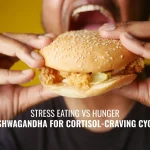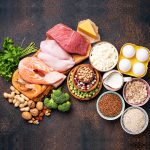We’ve all been there, reaching for chips, chocolate, or that extra serving of dessert after…
Read MoreNo samosas, jalebi, or ice cream! The thought of going on a diet can be fairly daunting. But then think of the dangers of being overweight or obese – it can lead to complications like atherosclerosis, high blood pressure, diabetes, high blood cholesterol, sleep disorders, heart disease, and certain cancers.[1][Overweight and Obesity].National Institutes of Health. It can even lead to an increased risk for osteoarthritis as it puts extra strain on your joints.[2][Osteoarthritis].NHS. Getting to a healthy weight might be worth the sacrifice of a few sweet treats or junk food binge! But, we know, the quagmire that is the endless diet plans – the low-fat diet, low-carb diet, high-protein diet, and so on. Which one’s the best? Read on to find the answers to all your questions about diet plans.
Truth be told, just about any diet will work as long as you reduce the amount of calories you take in. You do need to make sure that your diet is balanced and healthy. It’s also a good idea to choose a diet plan that you can live with. This means that it includes tasty and healthy foods which are neither difficult nor expensive to prepare.[3][Diet & Weight Loss]. Harvard Health Publishing. Remember, healthy weight loss requires long term changes to your eating and exercise habits.
While most of us understandably want to shed those extra pounds as quickly as possible, people who reduce weight more slowly and steadily tend to be more successful at keeping it off. Losing around ½ kg to 1 kg per week is typically considered safe. In order to achieve this:
But remember it’s not the end of the world if you overshoot your calorie limit on a particular day. It just means that you have to make up for the extra calories consumed over the following days.[4][Start the NHS weight loss plan]. NHS.[5][Losing Weight]. Centers for Disease Control and Prevention.
According to ayurveda, the five elemental forces of nature – air, space, fire, earth, and water – combine to form the three doshas – pitta, vatta, and kapha. When these doshas are balanced and in harmony you’re healthy. But an imbalance can lead to health problems including issues like obesity.
In ayurvedic thought an imbalance in vata dosha causes an increase in digestive strength. And an increase in agni (or digestive strength) leads to a corresponding increase in appetite and food consumption. Meanwhile, a hampered conversion of medo dhatu (or fat tissue) into asthi dhatu (or bone tissue) results in increased fat. An increase in kapha dosha – which is caused by excessive rest as well as the consumption of excess fried foods, sweets, etc. – also contributes to obesity.
According to ayurveda, it is important to consider the constitution or prakriti of an individual, which is based on their predominant dosha, while dealing with obesity. One study found that a diet plan which took this into account did, in fact, result in weight loss.
Making sure that you get all the nutrients you need is an important aspect of your diet plan. It’s not a good idea to go for diets that completely cut out one food group. Here are a few tips on healthy eating as you diet:
Let’s take a closer look at the elements that make up a healthy diet and see if they aid weight loss:
Research indicates that people on restricted calorie diets experience greater weight loss as well as fat mass loss when they’re on higher protein diets compared to those on lower protein diets.[9]Leidy, Heather J., Peter M. Clifton, Arne Astrup, Thomas P. Wycherley, Margriet S. Westerterp-Plantenga, Natalie D. Luscombe-Marsh, Stephen C. Woods, and Richard D. Mattes. “The role of protein … Continue reading According to experts, proteins should contribute 10 to 35% of the total calories consumed by a healthy adult.[10][Protein in diet]. U.S. National Library of Medicine. Keep in mind that 1 gram of protein gives you 4 calories while a gram of fat contributes 9 calories and 1 gram of carbohydrates contributes 4 calories.[11][Figuring Out Fat and Calories].The Nemours Foundation. Fish, meats, poultry, low fat dairy products, legumes, beans, eggs etc. are good sources of protein.
According to research, increased vegetable intake is associated with lower risk of weight gain and being obese as well as a smaller waist circumference. But this does not hold true for starchy vegetables like potatoes. That’s actually linked to weight gain.[13]Nour, Monica, Sarah Alice Lutze, Amanda Grech, and Margaret Allman-Farinelli. “The relationship between vegetable intake and weight outcomes: a systematic review of cohort studies.” … Continue reading According to experts, most adult women should have at least 2.5 cups of vegetables a day and most adult men should have at least 3 cups a day. You can reduce this amount proportionately if you’re on a reduced calorie diet. But you may find that you can reach your calorie goals by cutting out other unhealthy foods – here’s looking at you fries and colas – first.[14][How Many Vegetables Should You Eat Every Day?].Verywell Fit.
Experts suggest that adults need about 3 cups of dairy products in a day.[15][Dairy].USDA. According to research, consuming three servings of dairy per day can result in significant body fat reduction in people who are obese. And it can also result in quicker weight loss and body fat loss in comparison to people on low dairy diets. One study found that people on a calorie restricted diet who had yogurt lost more abdominal fat and had a greater reduction in waist circumference when compared to those who didn’t have yogurt.[16]Zemel, M. B., J. Richards, S. Mathis, A. Milstead, L. Gebhardt, and E. Silva. “Dairy augmentation of total and central fat loss in obese subjects.” International journal of obesity 29, … Continue reading
We need to limit our consumption of unhealthy fats, added sugars, and excess salt for a healthy diet. What does that look like? This means that you limit:
A healthy diet is about moderation and balance rather than completely abstaining from certain foods. You can enjoy high calorie foods but have them less often and go for smaller portions. You can also try low calorie versions of foods that you enjoy by cutting down on their fat content or switching ingredients. For instance, try baked or grilled chicken instead of the fried version. You never know you might end up with a new fav dish.[19][Healthy Eating for a Healthy Weight]. Centers for Disease Control and Prevention.
While a healthy reduced calorie diet is a crucial element in weight loss other factors too play a role here:
According to experts we need to:
Not getting sufficient sleep is linked to being overweight. In fact, research indicates that people who experience better sleep quality and quantity (more than 7 hours per night) are more likely to successfully lose weight. This is not surprising given that inadequate sleep in linked to reduced levels of the hormone leptin which promotes satiety and increased levels of the hormone ghrelin which promotes hunger.[23]Thomson, Cynthia A., Kelly L. Morrow, Shirley W. Flatt, Betsy C. Wertheim, Michelle M. Perfect, Jennifer J. Ravia, Nancy E. Sherwood, Njeri Karanja, and Cheryl L. Rock. “Relationship between … Continue reading
We often reach for comfort foods to cope with difficult situations. That’s because foods that are high in sugar or fat reward parts of our brain. So how do we break this pattern?
Q: Is it safe to lose weight quickly?
A: Very rapid weight loss requires extreme efforts when it comes to diet and exercise. This could be unhealthy. Also, if you lose a lot of weight rapidly you might be losing water weight or lean tissue rather than fat. Losing around ½ kg to 1 kg per week is typically considered safe. However, in some cases – say when obesity is resulting in serious health problems – your doctor may prescribe a very low calorie diet for rapid weight loss. The bottom line is, you should only go on an extreme diet that can cause rapid weight loss if it is prescribed and supervised by your doctor.[25][Weight loss]. Mayo Clinic.
References
| ↑1 | [Overweight and Obesity].National Institutes of Health. |
|---|---|
| ↑2 | [Osteoarthritis].NHS. |
| ↑3 | [Diet & Weight Loss]. Harvard Health Publishing. |
| ↑4, ↑20 | [Start the NHS weight loss plan]. NHS. |
| ↑5 | [Losing Weight]. Centers for Disease Control and Prevention. |
| ↑6 | [Ayurveda].HealthLink BC. |
| ↑7 | Sharma, Shikha, Seema Puri, Taru Agarwal, and Vinita Sharma. “Diets based on Ayurvedic constitution–potential for weight management.” Alternative Therapies in Health & Medicine 15, no. 1 (2009): 44. |
| ↑8, ↑19 | [Healthy Eating for a Healthy Weight]. Centers for Disease Control and Prevention. |
| ↑9 | Leidy, Heather J., Peter M. Clifton, Arne Astrup, Thomas P. Wycherley, Margriet S. Westerterp-Plantenga, Natalie D. Luscombe-Marsh, Stephen C. Woods, and Richard D. Mattes. “The role of protein in weight loss and maintenance.” The American journal of clinical nutrition 101, no. 6 (2015): 1320S-1329S. |
| ↑10 | [Protein in diet]. U.S. National Library of Medicine. |
| ↑11 | [Figuring Out Fat and Calories].The Nemours Foundation. |
| ↑12 | [When it comes to protein, how much is too much?]. Harvard Medical School. |
| ↑13 | Nour, Monica, Sarah Alice Lutze, Amanda Grech, and Margaret Allman-Farinelli. “The relationship between vegetable intake and weight outcomes: a systematic review of cohort studies.” Nutrients 10, no. 11 (2018): 1626. |
| ↑14 | [How Many Vegetables Should You Eat Every Day?].Verywell Fit. |
| ↑15 | [Dairy].USDA. |
| ↑16 | Zemel, M. B., J. Richards, S. Mathis, A. Milstead, L. Gebhardt, and E. Silva. “Dairy augmentation of total and central fat loss in obese subjects.” International journal of obesity 29, no. 4 (2005): 391-397. |
| ↑17 | Bertoia, Monica L., Kenneth J. Mukamal, Leah E. Cahill, Tao Hou, David S. Ludwig, Dariush Mozaffarian, Walter C. Willett, Frank B. Hu, and Eric B. Rimm. “Changes in intake of fruits and vegetables and weight change in United States men and women followed for up to 24 years: analysis from three prospective cohort studies.” PLoS medicine 12, no. 9 (2015): e1001878. |
| ↑18 | [Healthy Weight Checklist]. Harvard T.H. Chan School of Public Health. |
| ↑21 | [Very low calorie diets]. NHS. |
| ↑22 | [Exercise].NHS. |
| ↑23 | Thomson, Cynthia A., Kelly L. Morrow, Shirley W. Flatt, Betsy C. Wertheim, Michelle M. Perfect, Jennifer J. Ravia, Nancy E. Sherwood, Njeri Karanja, and Cheryl L. Rock. “Relationship between sleep quality and quantity and weight loss in women participating in a weight‐loss intervention trial.” Obesity 20, no. 7 (2012): 1419-1425. |
| ↑24 | [Struggling with emotional eating?].Harvard Health Publishing. |
| ↑25 | [Weight loss]. Mayo Clinic. |


We are a team of food scientists and Ayurveda experts at Kapiva. Our mission is to raise awareness and educate people on ancient principles and herbs found in traditional texts. We work together to develop the most comprehensive content on Ayurveda which is grounded in peer-reviewed, scientific research.

We’ve all been there, reaching for chips, chocolate, or that extra serving of dessert after…
Read More
We know how difficult and tiresome a weight loss journey can sound, but it need…
Read More
The key to healthy weight loss is achieving a negative energy balance or taking in…
Read More
Thanks for choosing Kapiva! Ayurveda is about balance, the same translates to its view on…
Read More